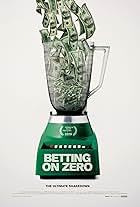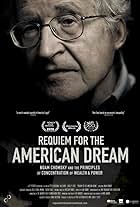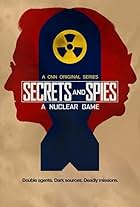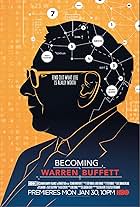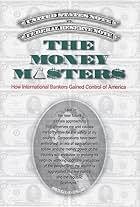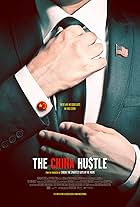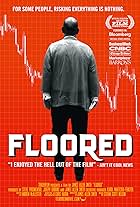Niall Ferguson takes us on a historical adventure through the ascent of money, applying fact and opinion throughout.Niall Ferguson takes us on a historical adventure through the ascent of money, applying fact and opinion throughout.Niall Ferguson takes us on a historical adventure through the ascent of money, applying fact and opinion throughout.
- Awards
- 1 win
Browse episodes
Storyline
Did you know
- ConnectionsEdited into The Ascent of Money (2009)
Featured review
Thought I'd get around to reviewing this excellent six part series I watched in mid 2009. Good thing I made some notes to jog my memory. If you've seen Michael Moore's excellent documentary "Capitalism: A love story", you may remember Moore asking an expert what a "derivative" was and being amused by that expert's inability to describe it. Well, in "The ascent of money", film maker Niall Ferguson doesn't target such straw men...if you want an extremely detailed and forensic account of the many reasons why the financial markets collapsed in 2008, Ferguson is your man.
The series itself is an odd bod. The first episode didn't really hold any interest for me, which is why I'm not scoring this series a perfect 10/10. It's as if the nature of the series all of a sudden changed in the wake of the global financial crisis. After the first episode, the rest of the series hones in on the reasons for this crisis. However, there are many interesting historical stories which are either interesting for their own sake, or because they tie-in with what went wrong during the 2008-09 crisis.
Some of the topics I found interesting in the series were:
Episode 2:
The role of the Jewish bankers the Rothschilds in defeating Napolean and the Confederates (in the American civil war). How the Nazis rewrote that history is also covered.
Episode 3: How the Scot who owned 25% of the US caused the French revolution. Parallels between the Enron bubble (which burst late 2001) and the Mississippi bubble of 1719.
Episode 4: The welfare state dismantled; rise of futures/derivatives/hedge-funds (the latter being crucial to the crisis of 2008-09).
Episode 5: The property booms in English speaking countries; the game of Monopoly; the fall of the landed aristocracy in Britain; Detroit on the verge of communist revolution in 1932!; The "New deal" as a way to avert such revolutionary sentiments and to bring African Americans into the mainstream; the Subprime mortgage crisis in the US.
Episode 6: How Britain was the world's largest drug dealer! "Foolproof" financial trading (which was anything but); possible future conflicts between the U.S and rising superpower China.
This is a superb series which covers all the issues of the global financial crisis...it's like a mini university course on finance and economic history. It has a lot of historical examples and the most complex modern aspects of economics and finance are dealt with in a lucid manner...you may want to have a pen and notepad handy...there's plenty of food for thought here.
The series itself is an odd bod. The first episode didn't really hold any interest for me, which is why I'm not scoring this series a perfect 10/10. It's as if the nature of the series all of a sudden changed in the wake of the global financial crisis. After the first episode, the rest of the series hones in on the reasons for this crisis. However, there are many interesting historical stories which are either interesting for their own sake, or because they tie-in with what went wrong during the 2008-09 crisis.
Some of the topics I found interesting in the series were:
Episode 2:
The role of the Jewish bankers the Rothschilds in defeating Napolean and the Confederates (in the American civil war). How the Nazis rewrote that history is also covered.
Episode 3: How the Scot who owned 25% of the US caused the French revolution. Parallels between the Enron bubble (which burst late 2001) and the Mississippi bubble of 1719.
Episode 4: The welfare state dismantled; rise of futures/derivatives/hedge-funds (the latter being crucial to the crisis of 2008-09).
Episode 5: The property booms in English speaking countries; the game of Monopoly; the fall of the landed aristocracy in Britain; Detroit on the verge of communist revolution in 1932!; The "New deal" as a way to avert such revolutionary sentiments and to bring African Americans into the mainstream; the Subprime mortgage crisis in the US.
Episode 6: How Britain was the world's largest drug dealer! "Foolproof" financial trading (which was anything but); possible future conflicts between the U.S and rising superpower China.
This is a superb series which covers all the issues of the global financial crisis...it's like a mini university course on finance and economic history. It has a lot of historical examples and the most complex modern aspects of economics and finance are dealt with in a lucid manner...you may want to have a pen and notepad handy...there's plenty of food for thought here.
- How many seasons does The Ascent of Money have?Powered by Alexa
Details
- Runtime2 hours
- Color
Contribute to this page
Suggest an edit or add missing content









